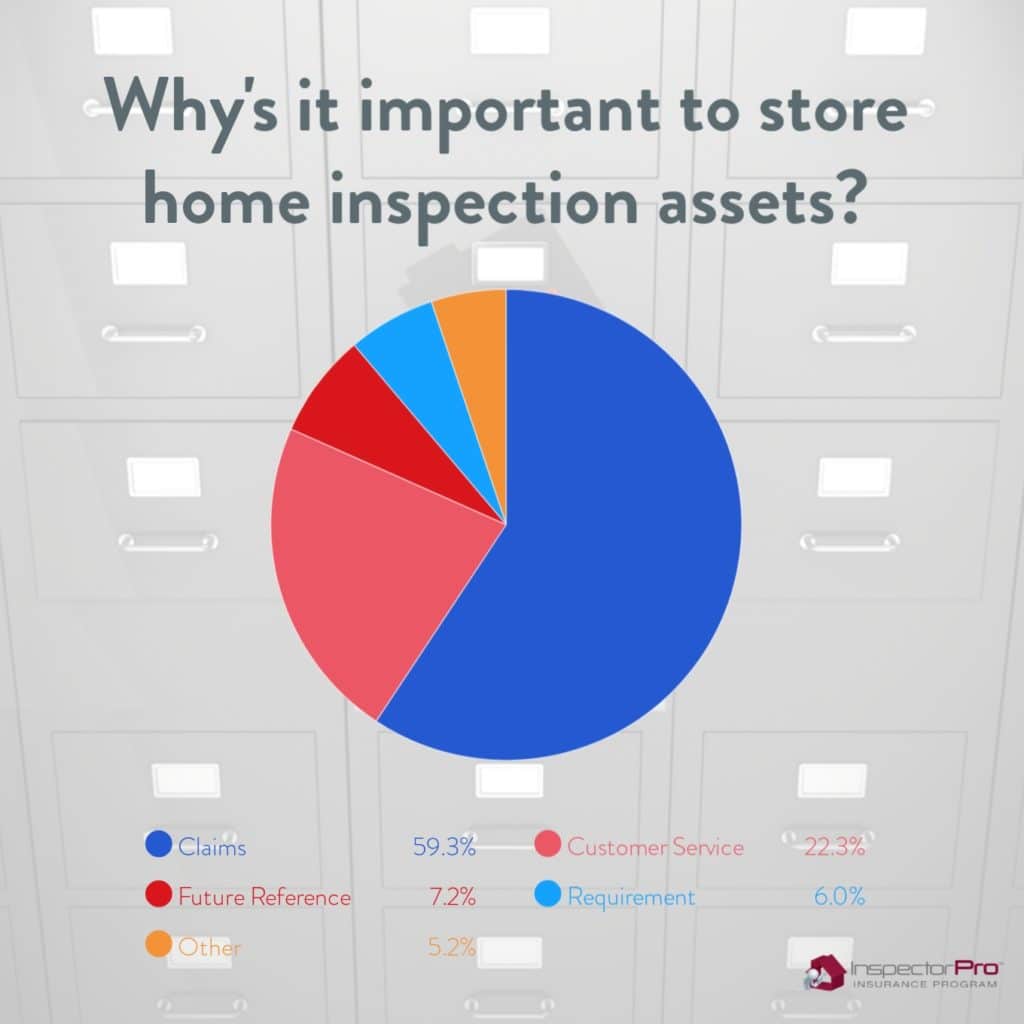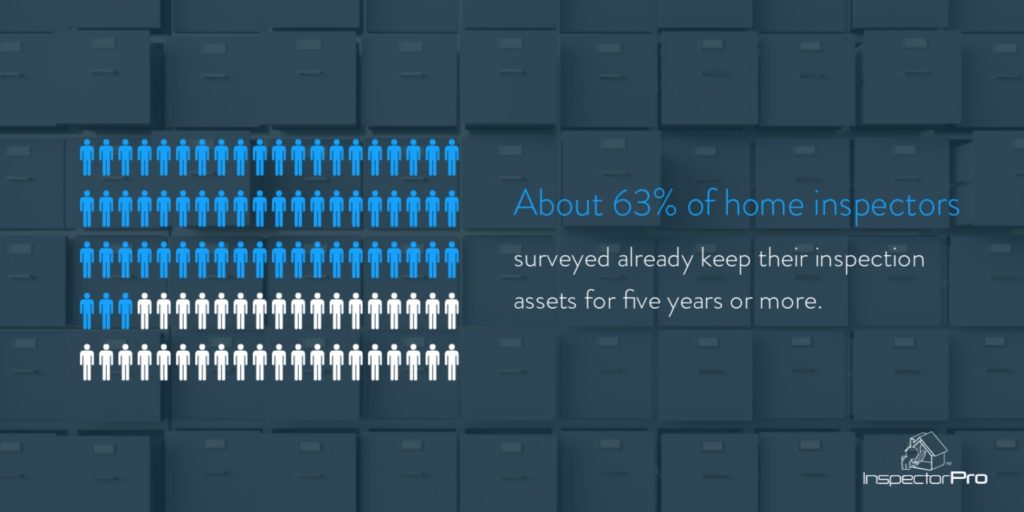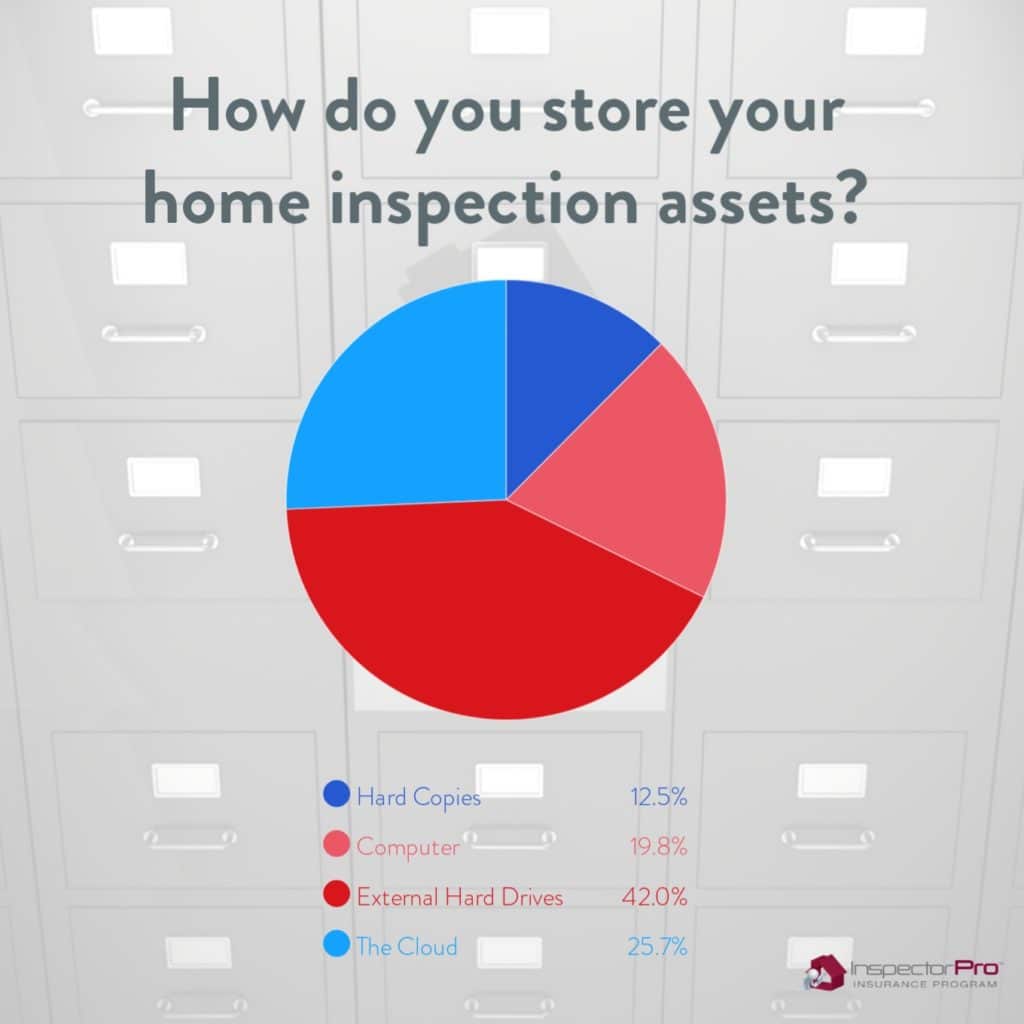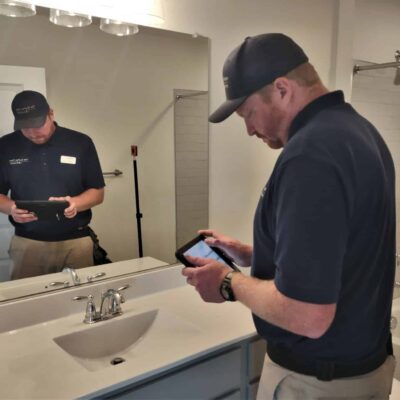Inspection assets: How to store inspection contracts, reports, photos, and videos
Last Updated November 9, 2023

 In Massachusetts, claimants alleged that a home inspector missed over $30,000 in property damages. According to the claimants, the inspector failed to identify a bow in the exterior wall along with resulting water, structural, and pest damage.
In Massachusetts, claimants alleged that a home inspector missed over $30,000 in property damages. According to the claimants, the inspector failed to identify a bow in the exterior wall along with resulting water, structural, and pest damage.
The crawlspace that exhibited most of the issues was inaccessible at the time of the inspection, and the inspector noted the lack of access in his report. However, the claimants stated that the inspector still should have been able to identify the bow from outside the property. With their allegations, the claimants included several pictures of the exterior wall of the home where the bow was clearly visible.
The claimants' photographs were nearly identical to the ones the home inspector had in his files. Nevertheless, there was a striking difference: The inspection photos revealed that there was a large bush covering the bow on the day of the inspection.
Why store home inspection assets
As illustrated in the claim above, it's important to store your home inspection assets, or the documents and graphics you create for and at each inspection. Inspection assets—such as photos, videos, signed contracts, and reports— serve a purpose long after your clients complete their real estate transactions. That’s why our claims team recommends that home inspectors keep inspection assets for a minimum of five years, regardless of the statute of limitations in the inspector’s area.
In our survey of 260 home inspectors, we asked the open-ended question, "Why's is storing inspection assets important?" See their responses in the graph below:
Overwhelmingly, survey participants cited four key reasons:
- Claims, meaning claims prevention and resolution
- Customer service, like the ability to answer questions about the property post inspection
- Future reference
- Requirement, such as a state requirement that inspectors keep copies of inspection contracts for a certain number of years
We go over the key reasons below.
Claims
Liability does not end when you deliver your inspection report. Therefore, you must be prepared to defend your inspection findings with your inspection assets for at least five years after the original inspection date.
But why are inspection assets so crucial to defense?
"If it's not documented then it didn't happen," said Daniel Cullen of Domicile Consulting, LLC in Illinois.
As Cullen suggests, inspection assets are key tools in a home inspector's defense. Assets testify of the property's condition on the day of the inspection. They provide factual evidence that's difficult for claimants to dispute.
According to Blaine DeVoy of DBI Building Inspections in Washington, home inspectors are responsible for storing inspection assets to assist their insurers with claims prevention and handling.
"As an inspector, you have to be able to retrieve and look at what you said in a report, what photos or videos you chose to include or not include," DeVoy said. "[You have to be able to] recall your impressions and bring up the signed agreement to help you and your insurer challenge or prevent a claim."
Donn Anderson of Anderson Home Inspection in Wisconsin has had firsthand experience with inspection assets stifling claims.
"I've had several clients call back 6 months to three years after the inspection with complaints," Anderson said. "Each time, I was able to either show a photo of the condition or their signature on the contract. That immediately defused the situations."
Inspection assets can assist home inspectors in managing risk in a multitude of ways: by deterring claims, by resolving claims, and even by decreasing claims' severity.
"Saving assets can mean the difference between a quick claim resolution and having to go to court," explained Taylor Willson of Willson Home Inspection, Inc. in Florida.

Customer Service
Many home inspectors use inspection assets to continue to assist their inspection clients long after they performed the inspection.
Darrell Clegg of Left Coast Inspections in California observed that inspection assets can serve as helpful reminders of what the property was like on inspection day.
"Most of us do at least two inspections a day five to six days a week. After a while the houses all run together in your head," Clegg said. "It's great to have that information to refresh your memory."
According to James Brady of Inspector Express in Florida, inspection assets can help inspectors answer client questions.
"I always want to show clients that I did my due diligence," Brady said. "While not all photos or videos may make the final inspection report, I keep them saved so, if a question ever arises, I have a record of my findings a home condition at the time of inspection."
Saving inspection assets makes it more likely that you'll be able to comment on and assist with client inquiries after your memory of the inspection fades.
Future Reference
When asked why preserving home inspection assets is important, many survey participants answered simply: future reference.
We can't say for sure what home inspectors meant when they left it at that. However, those that chose to expand mentioned using past assets as educational material. Others mentioned assets being great frames of reference for re-inspections.
Requirement
Some home inspectors live in states that require them to keep inspection assets for a certain amount of time. However, it's important to note that, while statutes of limitations can deter and defend claims, they cannot prevent them. Clients can still make claims against your business long after your statute of limitations expires. (Within the last two years, we received a claim 18 years after the allegedly negligent home inspection occurred. Yes, years.)
"In Wisconsin, the law requires [inspectors to store inspection assets for] two years. But I have seen inspectors get sued five years later," said Michael Schwitzer of 1st Choice Inspection in Wisconsin.
Further, statutes of limitations can change. While your state may say that inspection clients have two years to make a claim today, your state could change the law to allow clients five years to make a claim tomorrow.
"If a problem arises, you can't really count on a statute of limitations protecting you [from receiving a complaint, even if] it's written into your inspection agreement or even the Standards of Practice for your state. You need your inspection assets," DeVoy said.
The Five-Year Minimum
Thus, claims professionals urge home inspectors to keep inspection assets for a minimum of five years. We were pleased to see that about 63 percent of the home inspectors we surveyed are already keeping their inspection assets for five years or more. In fact, many respondents far exceeded the five year minimum proposed by our claims team, arguing that inspection assets should be kept for 10 years, as long as the property stands, or until their death.
One anonymous survey participant recommended storing inspection assets for at least five years after you are no longer in business, much like many inspectors carry an extended reporting period endorsement ("tail" coverage) after their insurance policy expires. (Read more about tail coverage here.)
John Paul de Oliveira of Home Sight Inspections, LLC in New Mexico took our anonymous survey participant’s suggestion one step further.
"Why not forever with the [low] cost of digital storage?" de Oliveira said.
While we applaud the efforts of de Oliveira and others to keep their inspection assets as long as possible, we realize that the space and cost associated with storage may make it difficult for many inspectors to keep inspection assets through the decades. Thus, we encourage inspectors to start with the five-year minimum endorsed by claims specialists and to go beyond that minimum when it’s desirable and achievable.
How to store home inspection assets
There are many ways to store your home inspection assets. The primary methods are in hard copies, on the computer, in external hard drives, and in the cloud.
Not sure of the difference between each solution? Read our quick explainer graphic below:
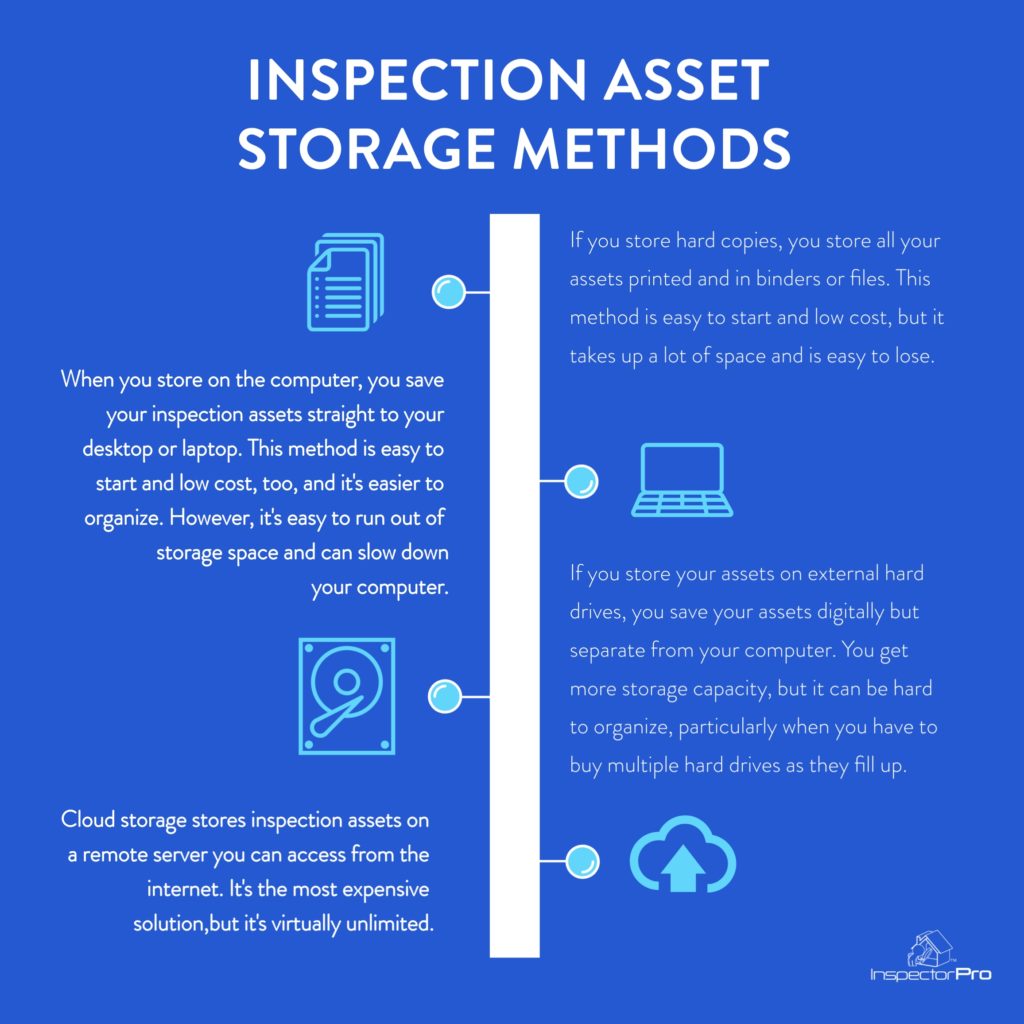
Now that you understand the common inspection asset storage options, you're ready to choose the best method(s) for you. See what the home inspectors we surveyed prefer below:
While the graph above depicts some preferences for some storage strategies over others, there is no mandatory method. In fact, many home inspectors store their inspection assets across storage methods.
"My reports are stored up in the cloud, but my pictures are stored on my computer," said Richard Stockton of A Better Home Inspection Service, LLC in Virginia.
However, many industry experts suggest that home inspectors store their inspection assets in multiple locations to prevent loss.
"Always have them saved to at least two locations," advised Mike Sanderson of Emerald Coast Inspection Services in Oregon. "I save all of my reports and photos in two different locations in the cloud: 1) on my report software company’s cloud and 2) on a [separate] cloud server service."
A quick recap
 Your inspection photos, videos, pre-inspection agreements, and inspection reports aren't just for the property sale. These assets serve as key reference documents for both your clients and you. Securely storing inspection assets helps you to answer client questions and respond to allegations. Inspection assets are customer service and risk management tools that better your business.
Your inspection photos, videos, pre-inspection agreements, and inspection reports aren't just for the property sale. These assets serve as key reference documents for both your clients and you. Securely storing inspection assets helps you to answer client questions and respond to allegations. Inspection assets are customer service and risk management tools that better your business.
Take a moment today to consider how you store your home inspection assets. What might you change to better protect you and your clients? Remember, our claims team urges home inspectors to keep inspection assets for a minimum of five years. We strongly encourage that you follow their counsel. After all, you never know when you'll need that photo of the bush in front of the property's exterior wall.
Think your pre-inspection agreement is out-of-date? Get the provisions and expertise you need to defend against future claims with our state-specific contracts.


